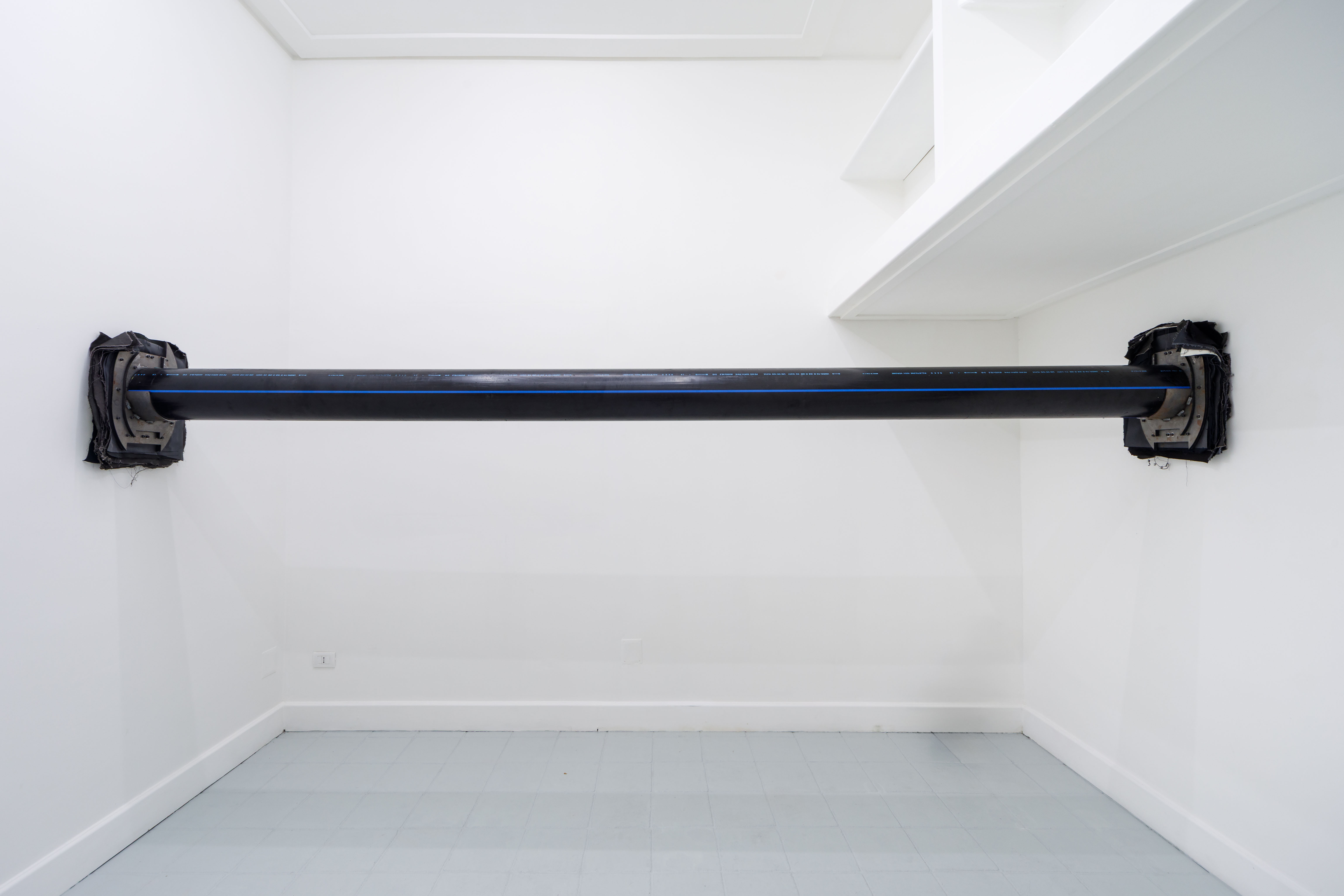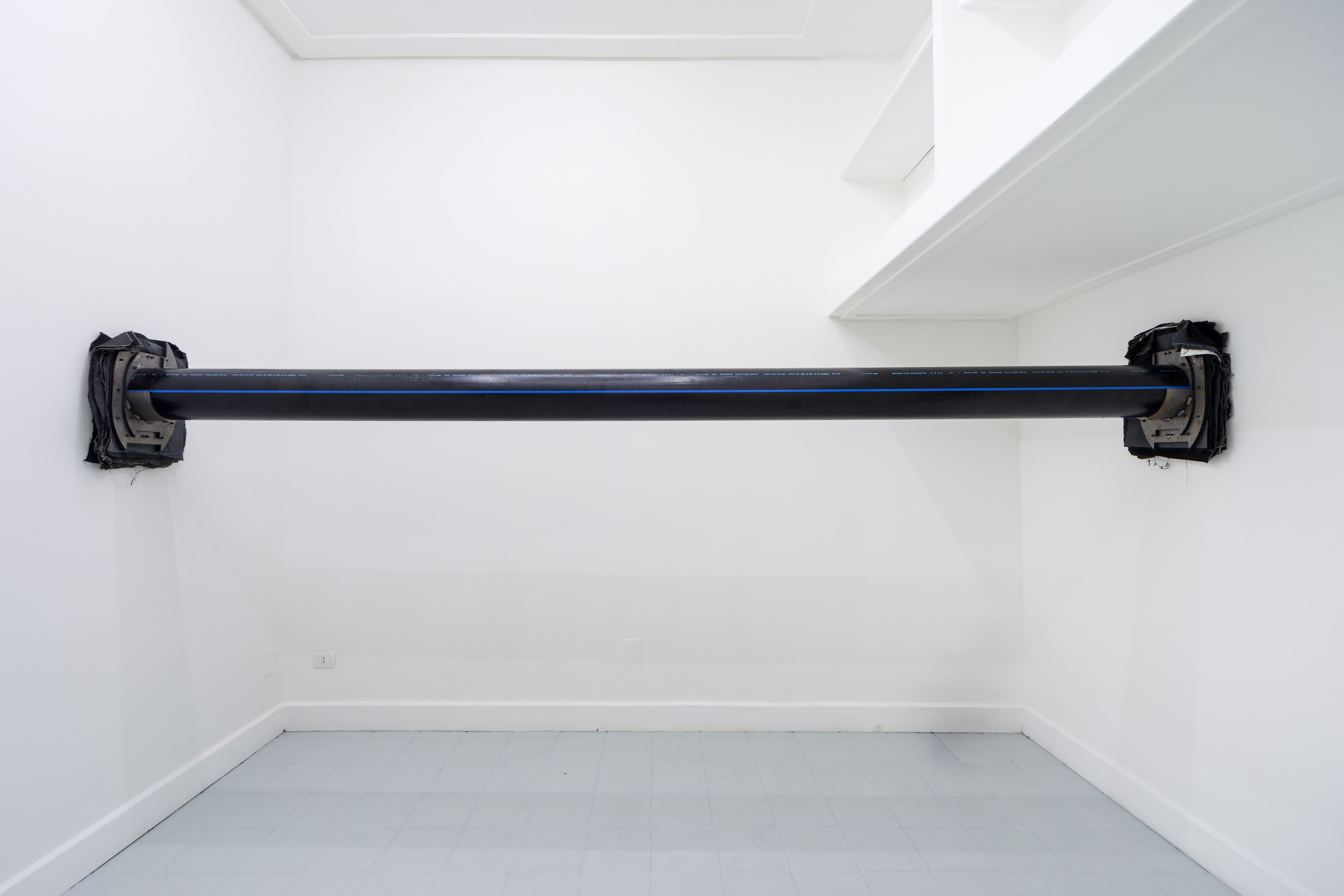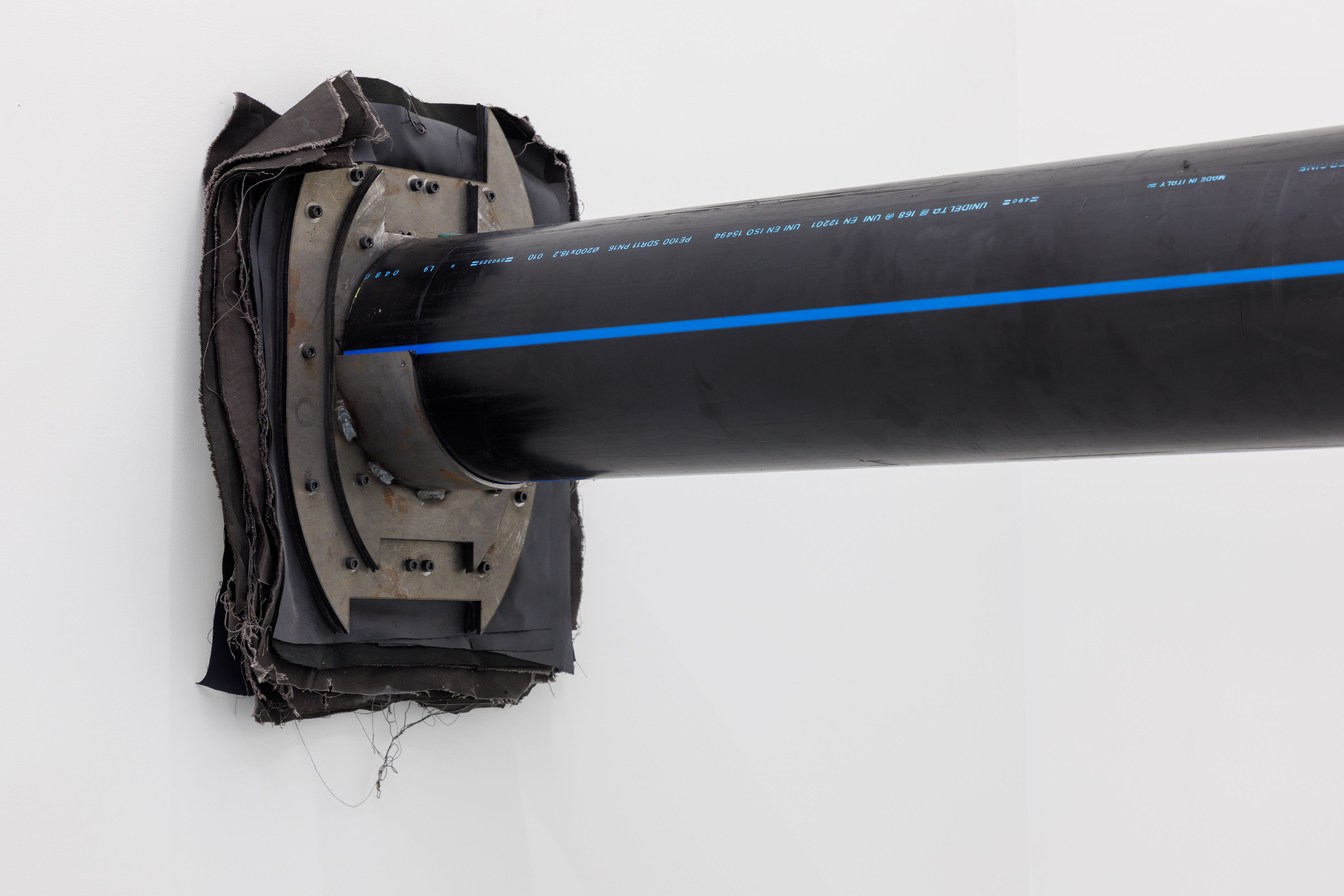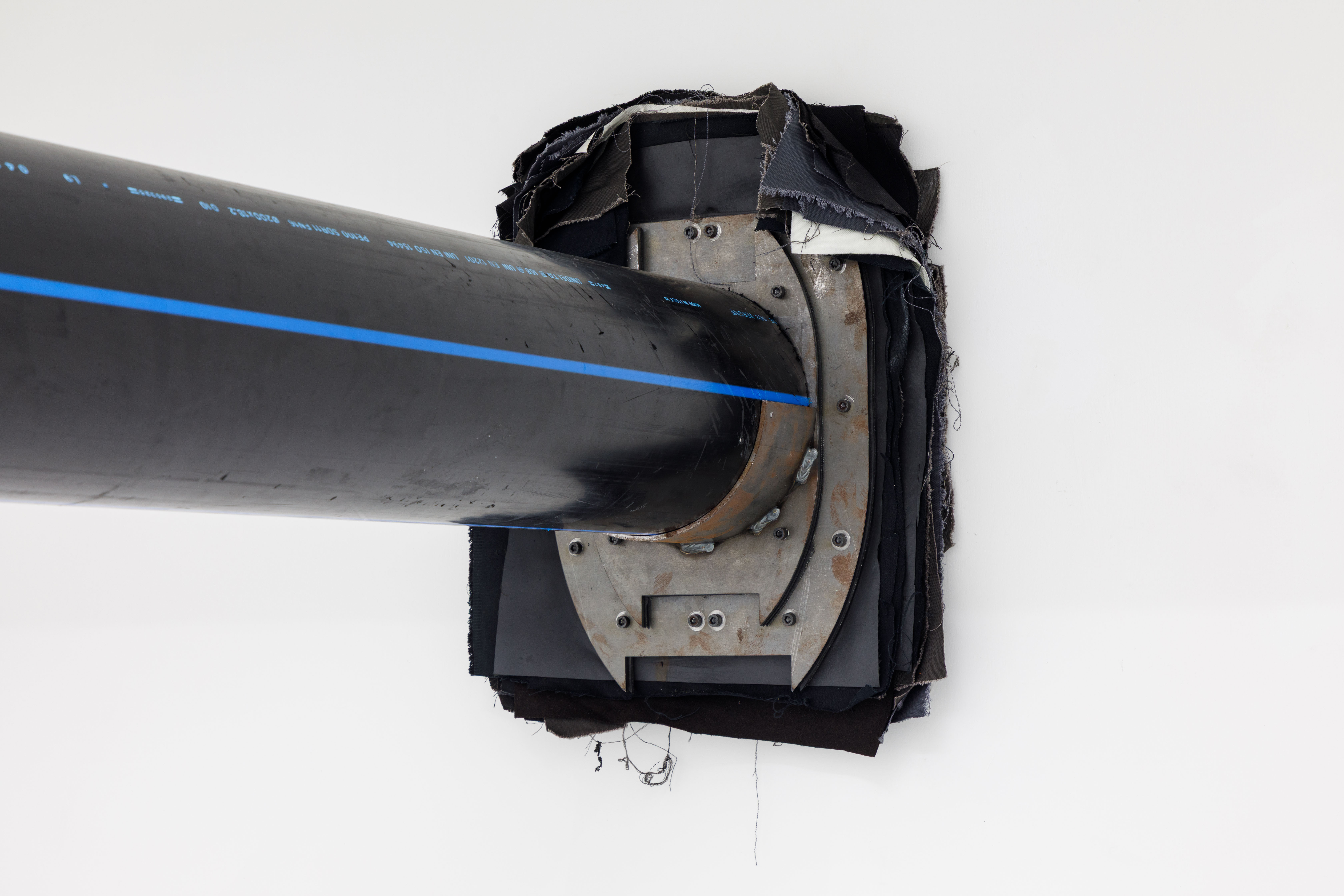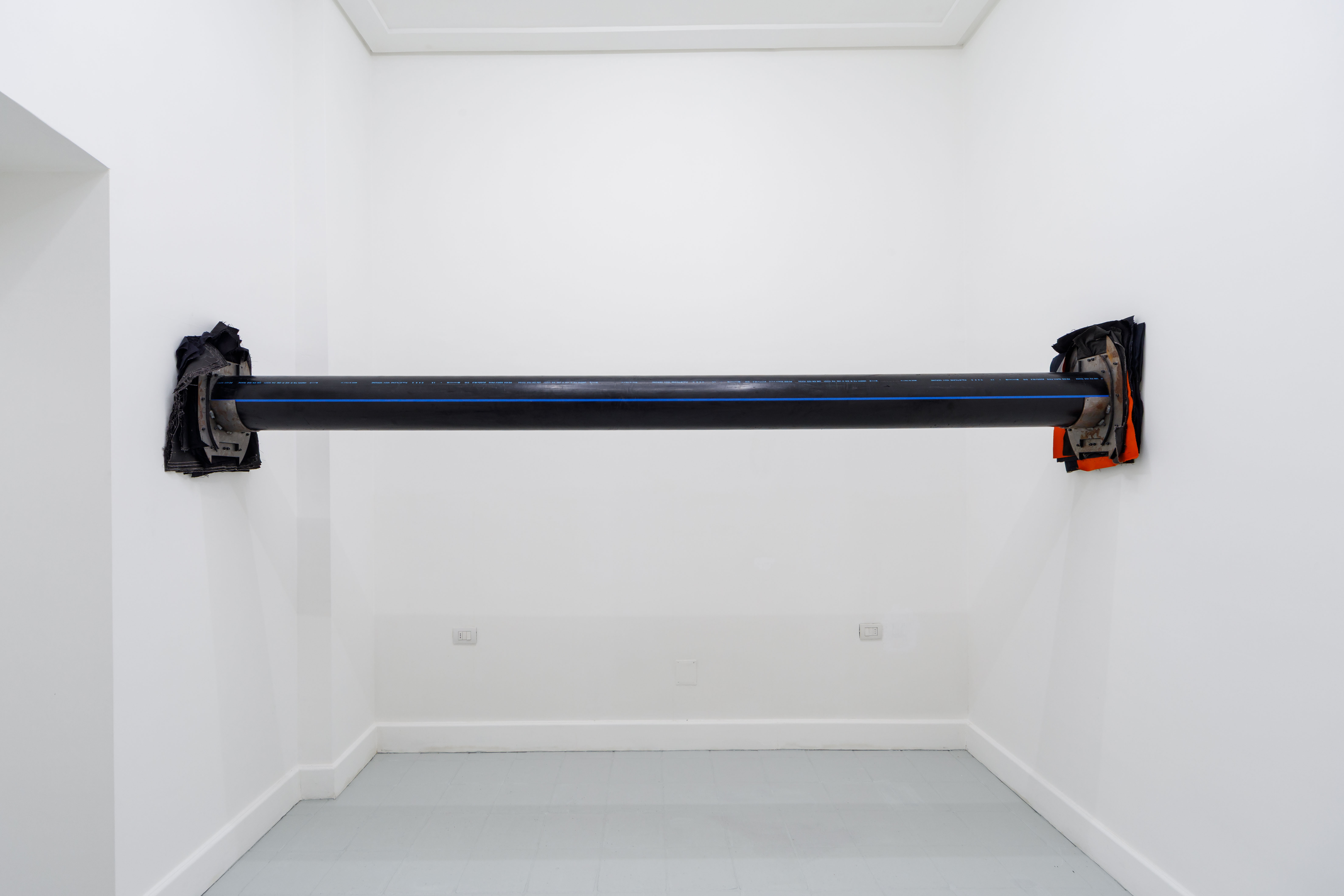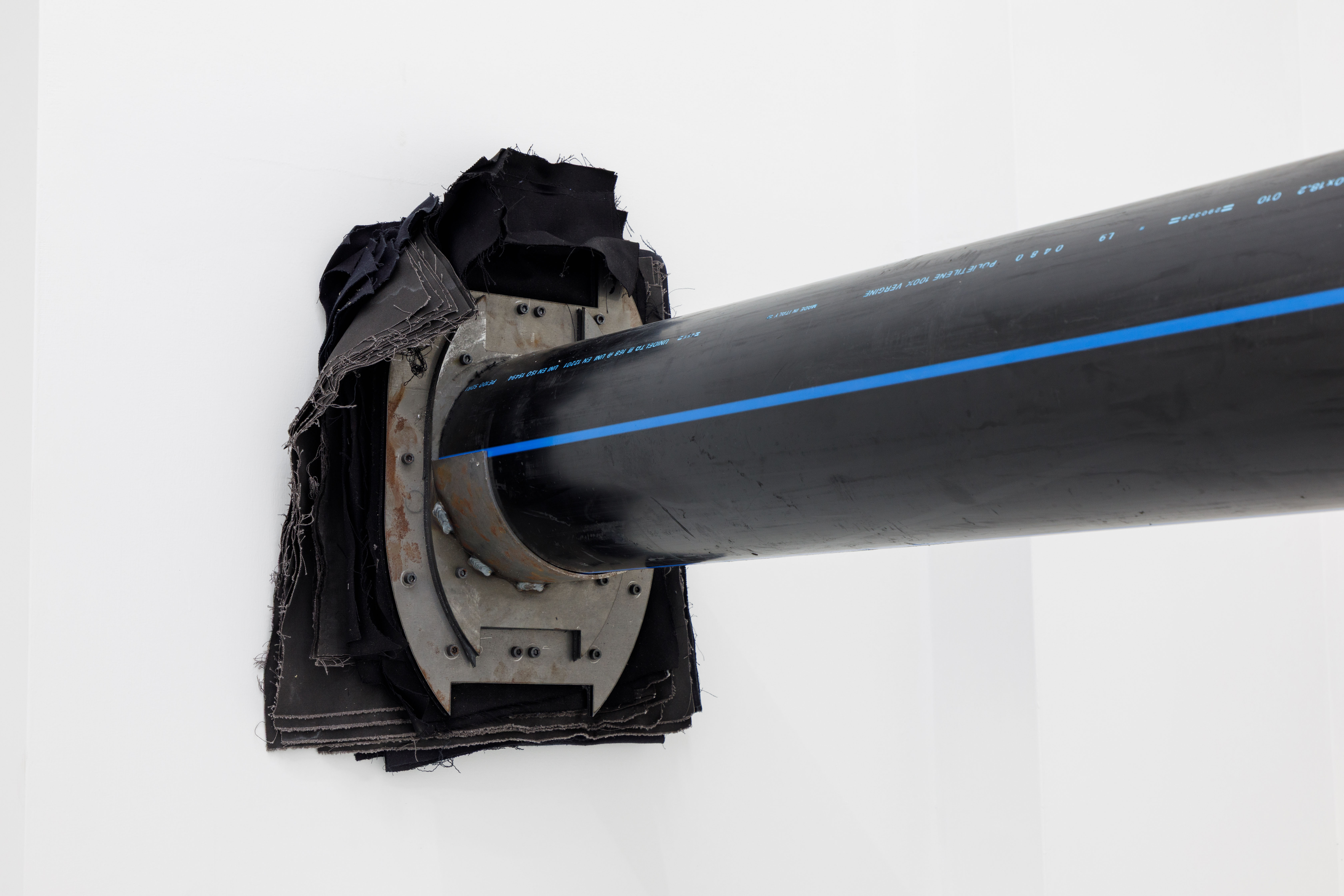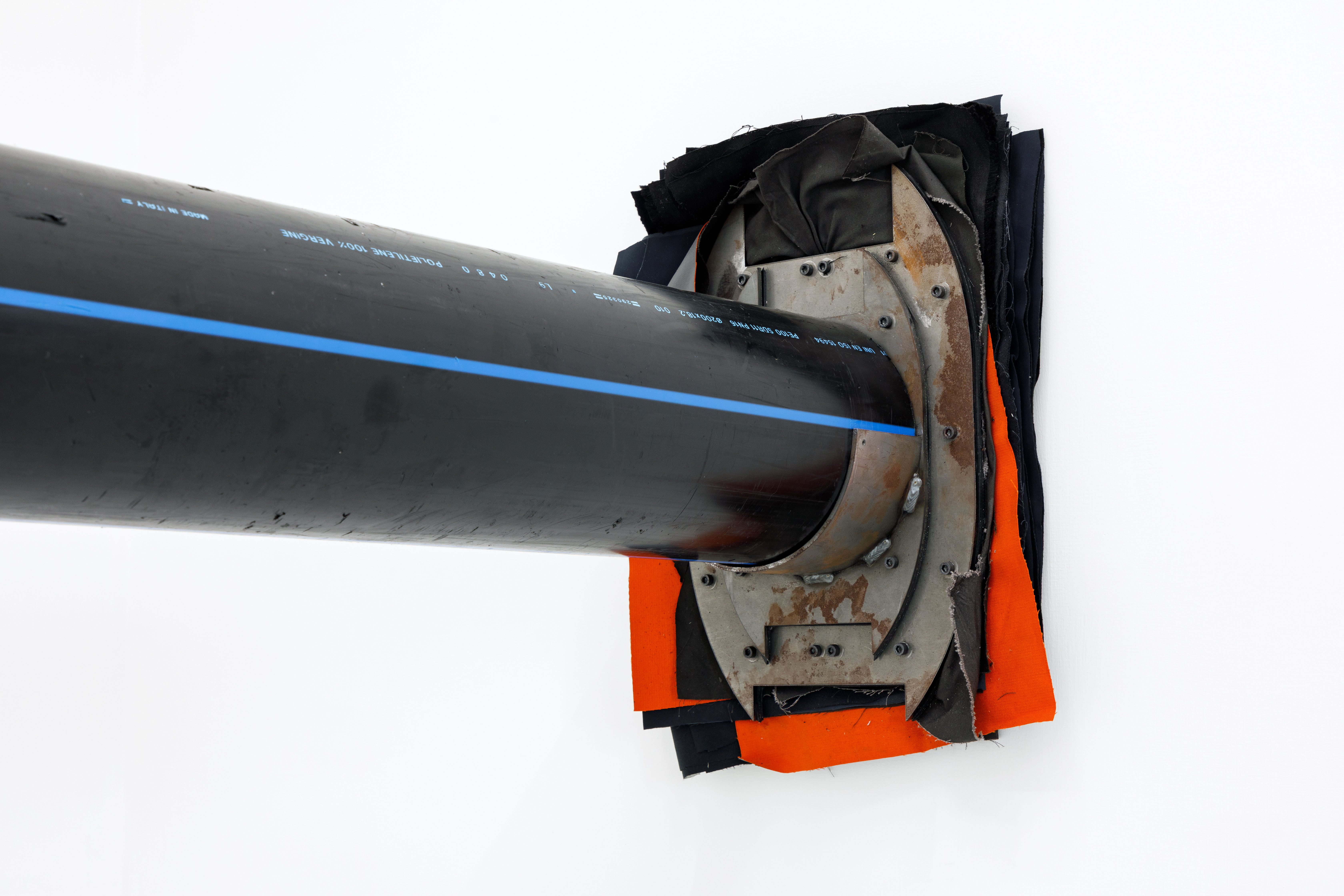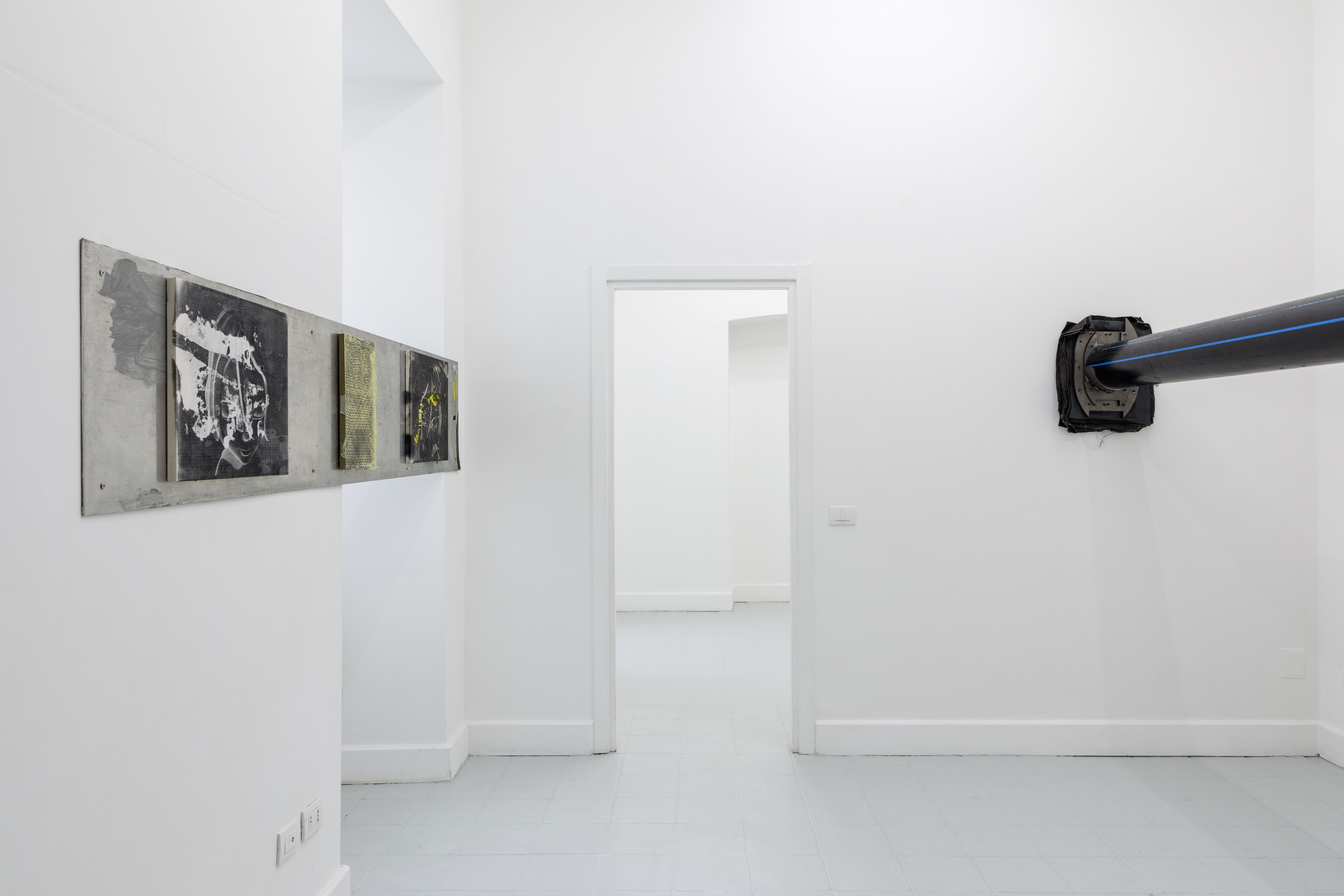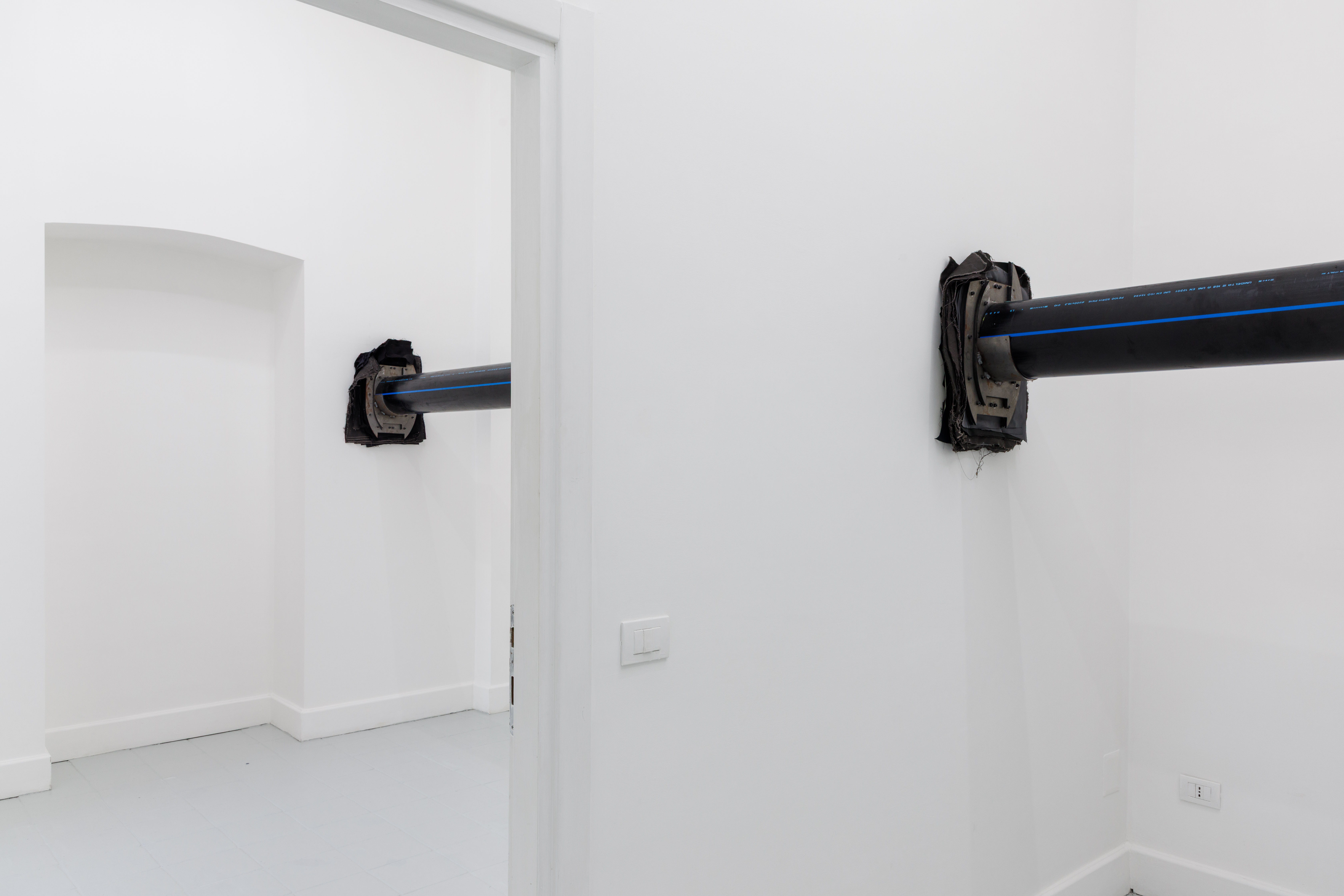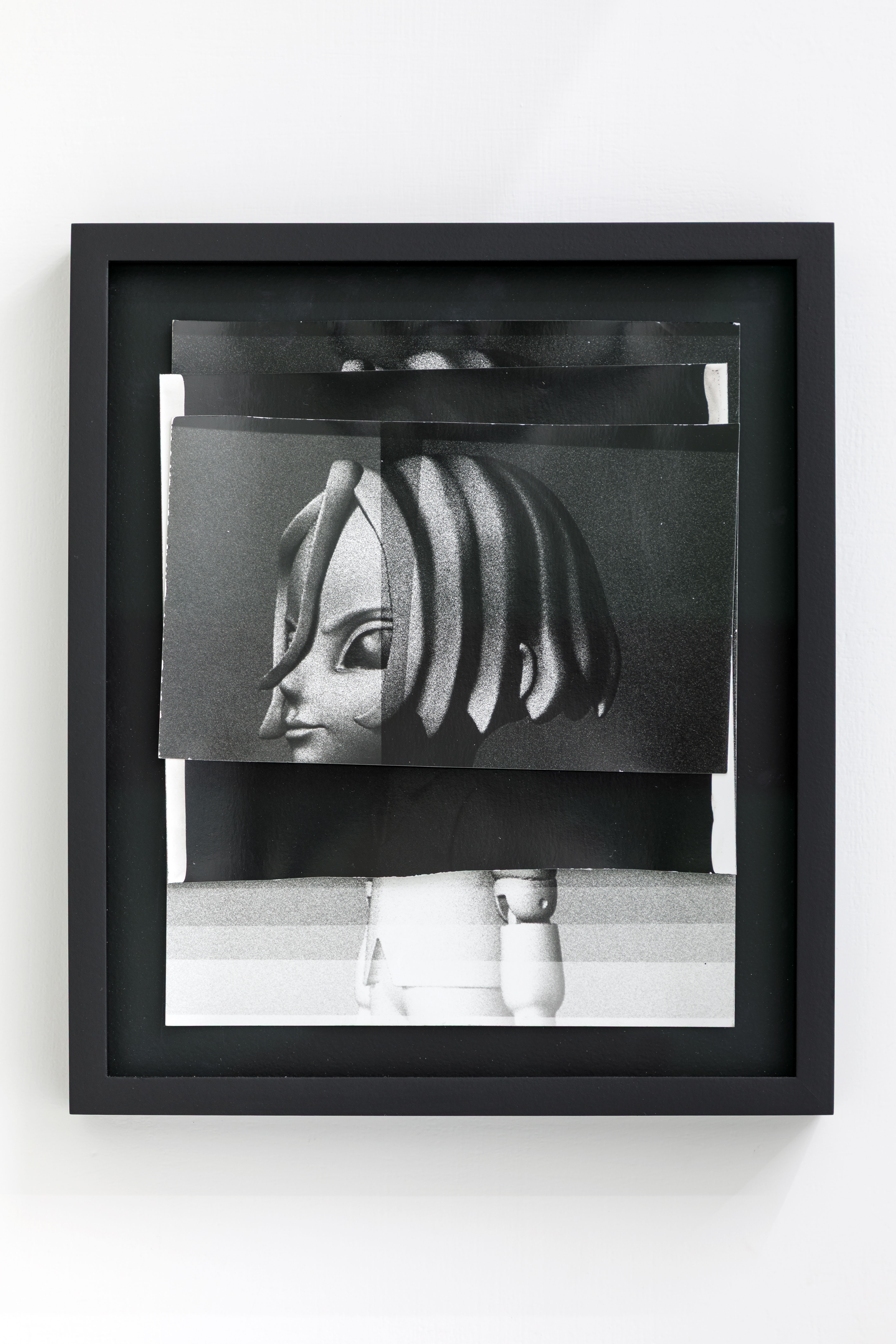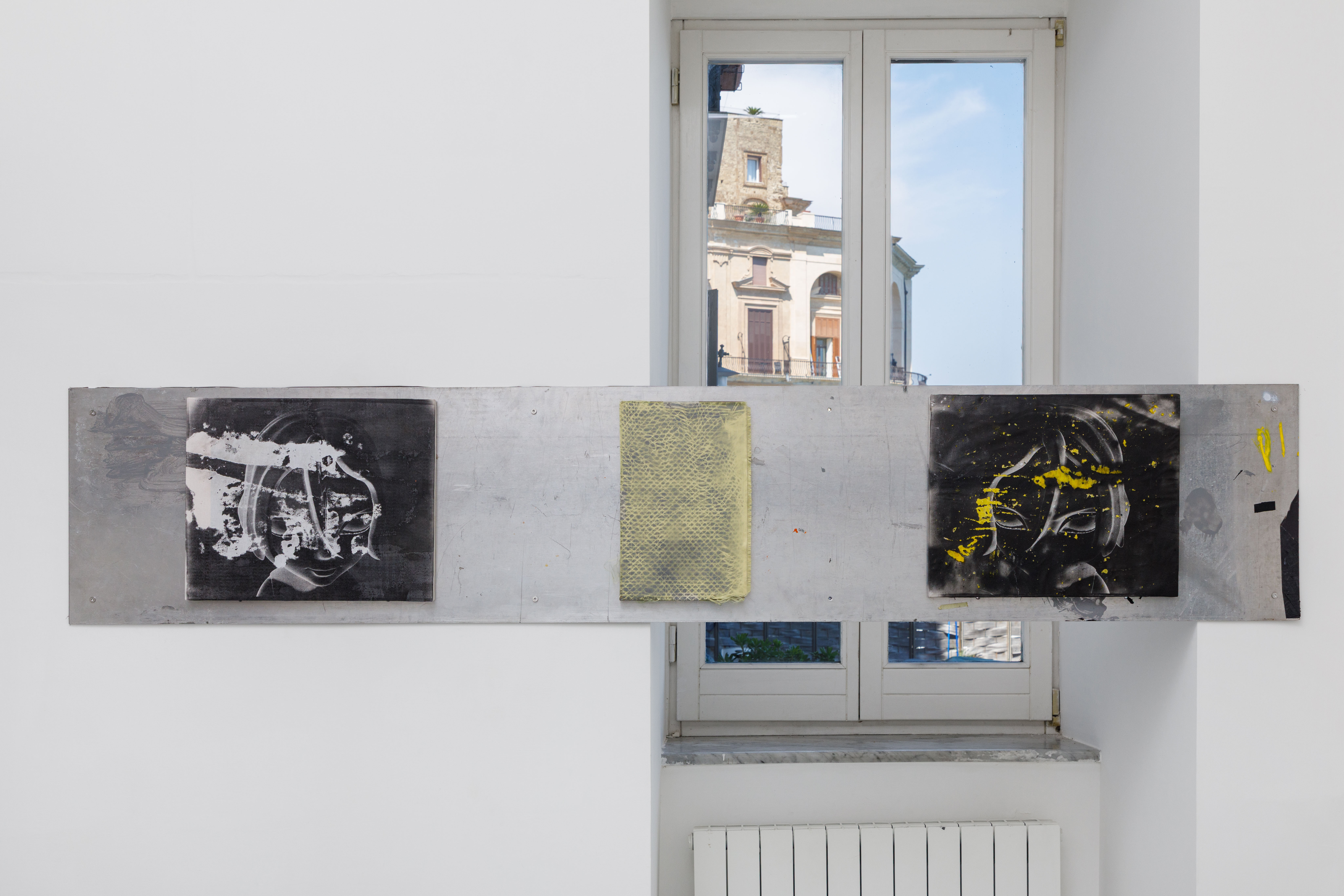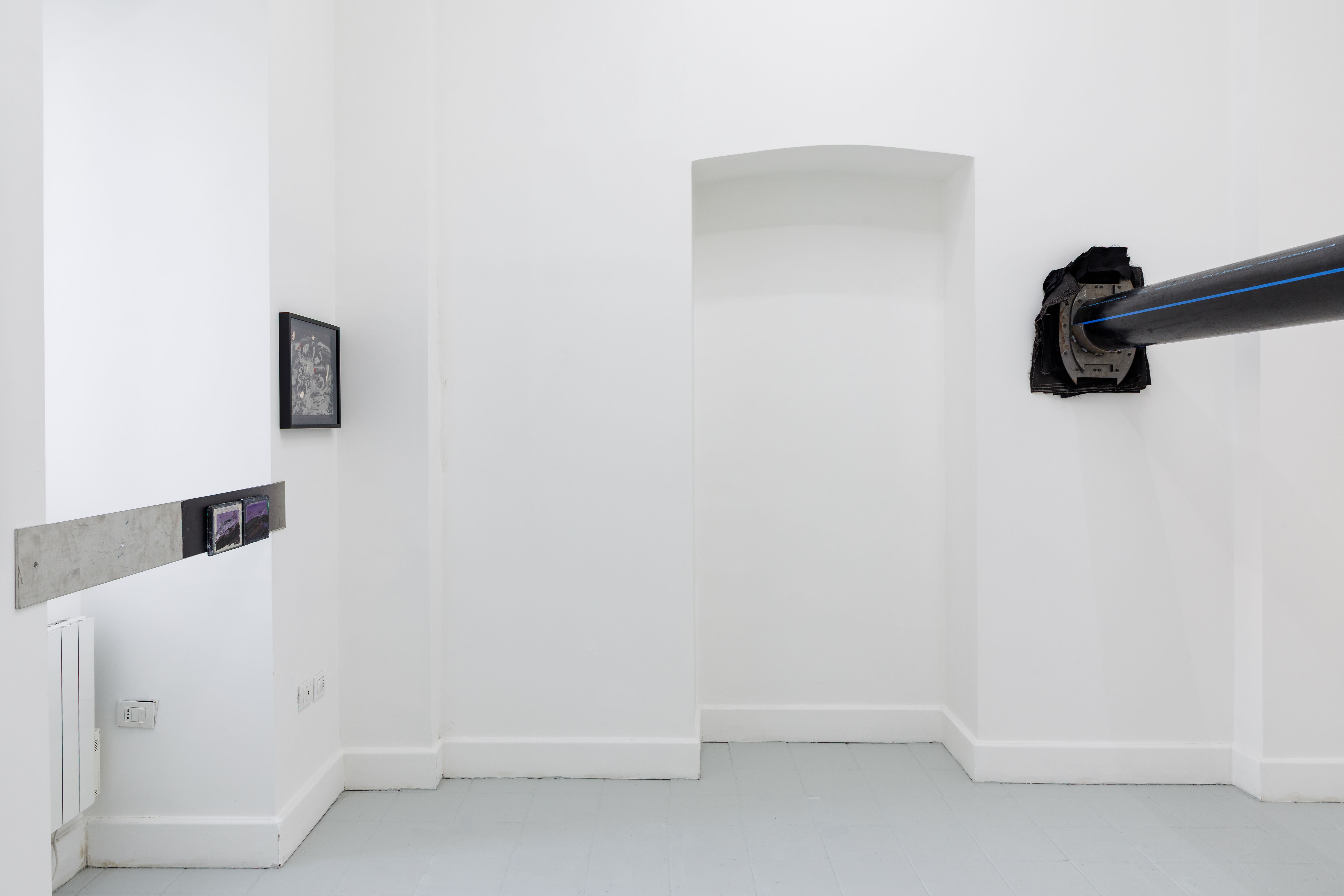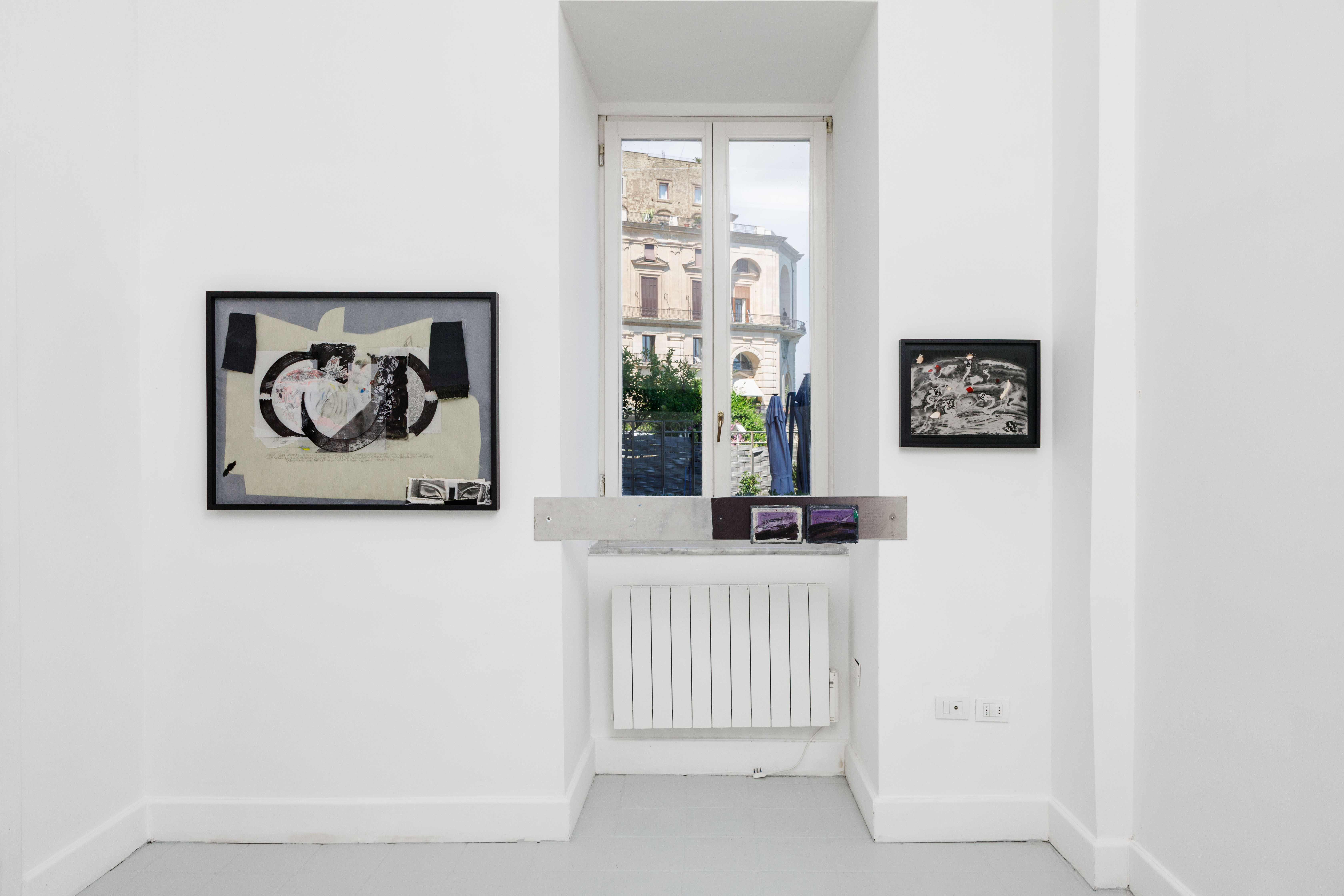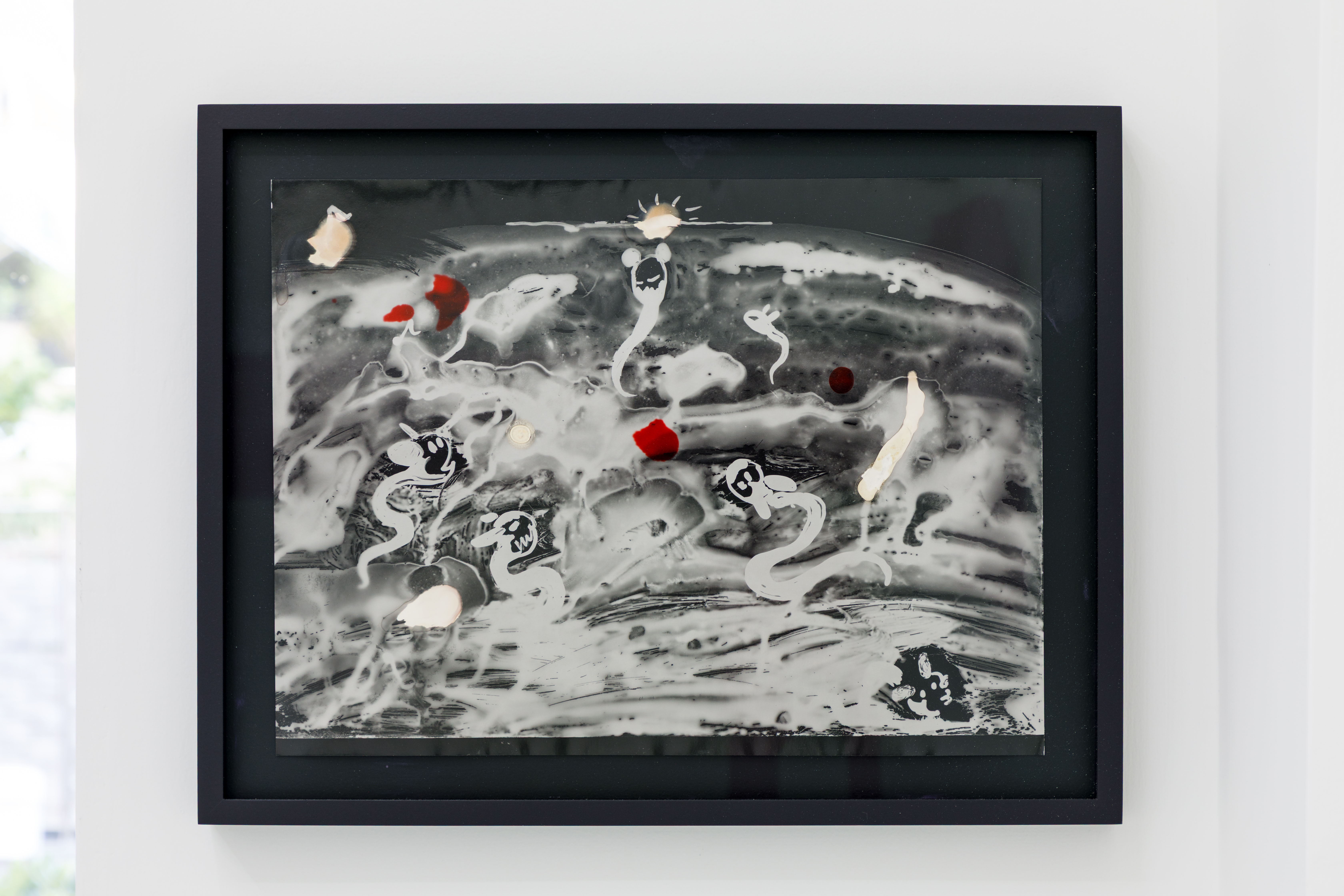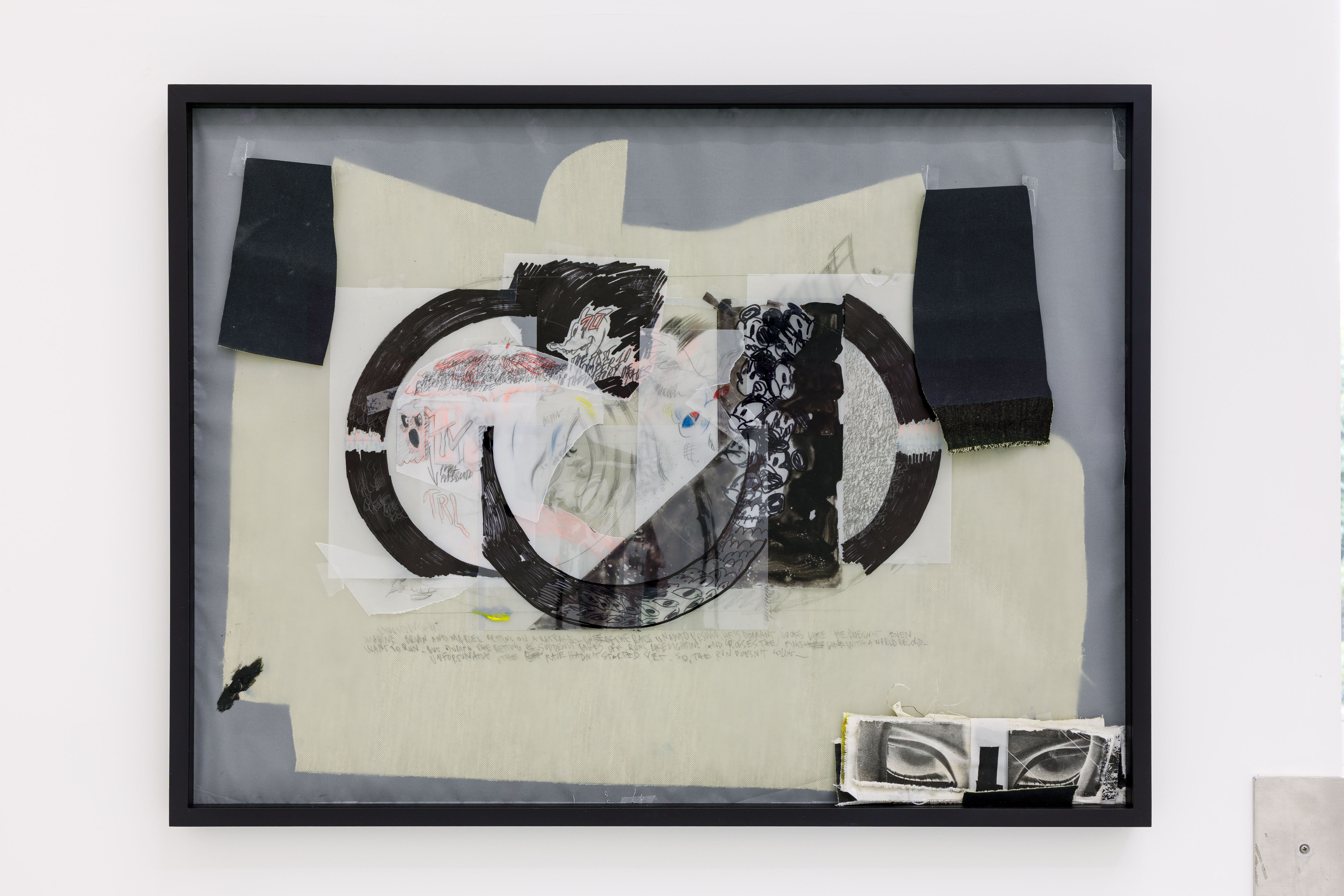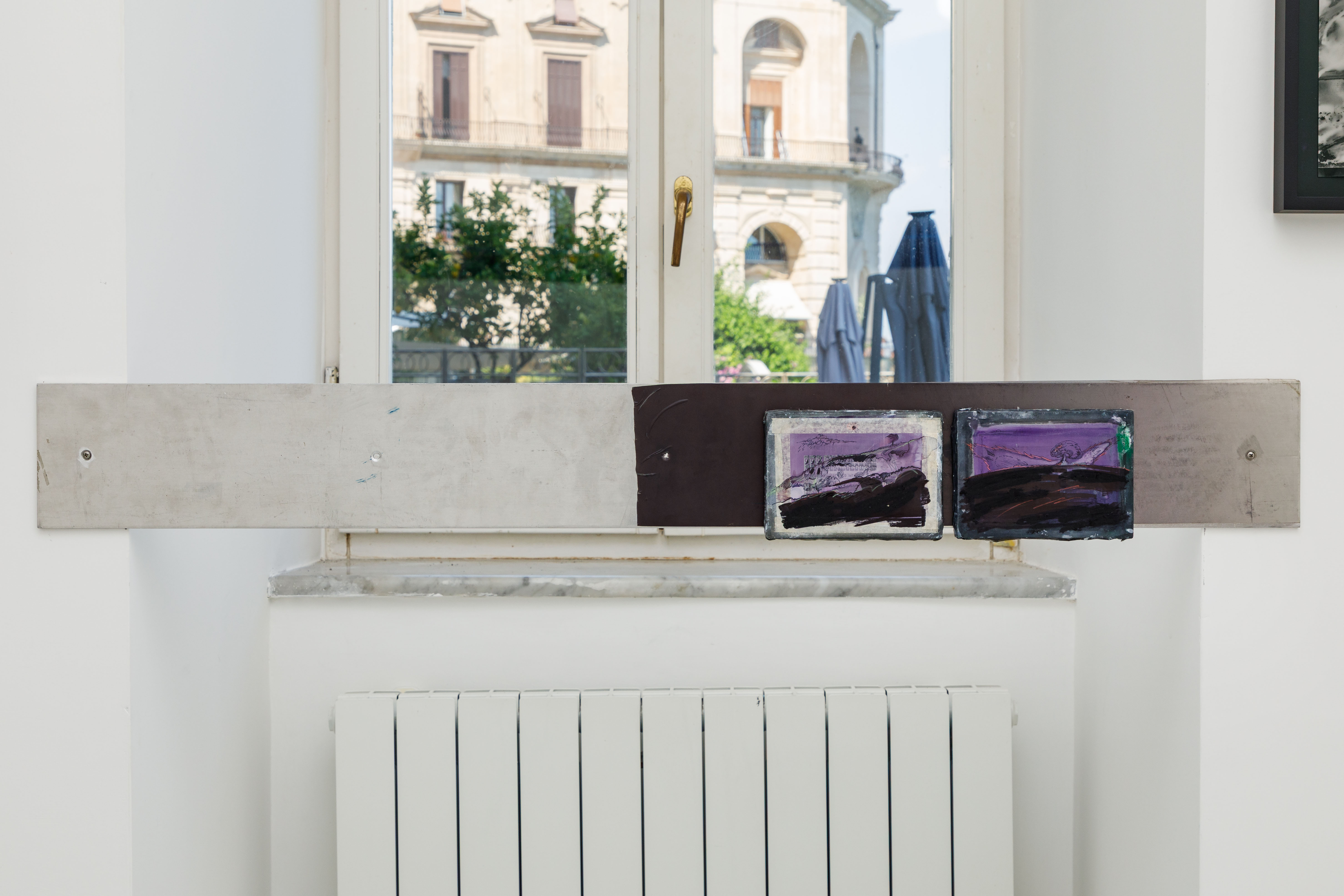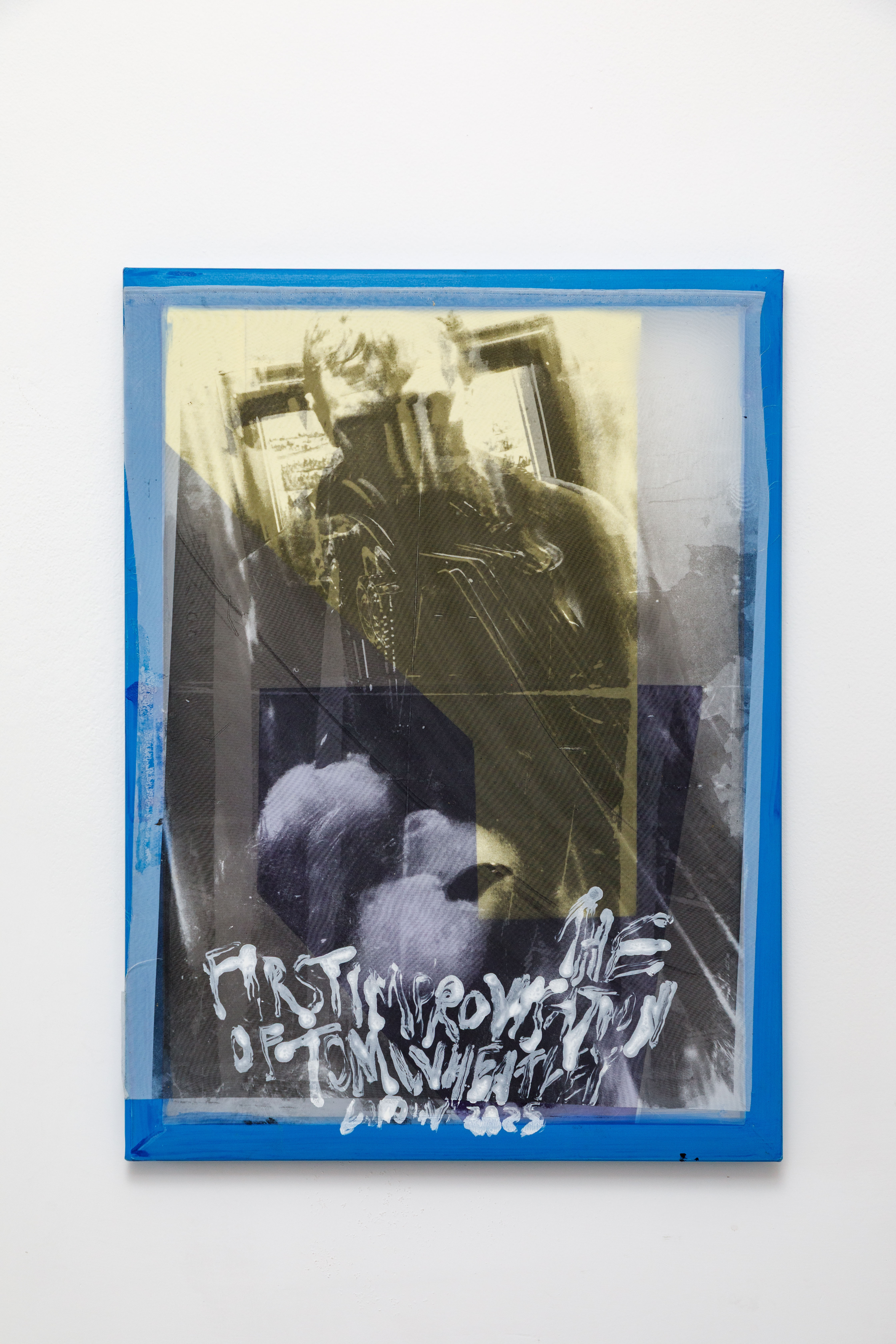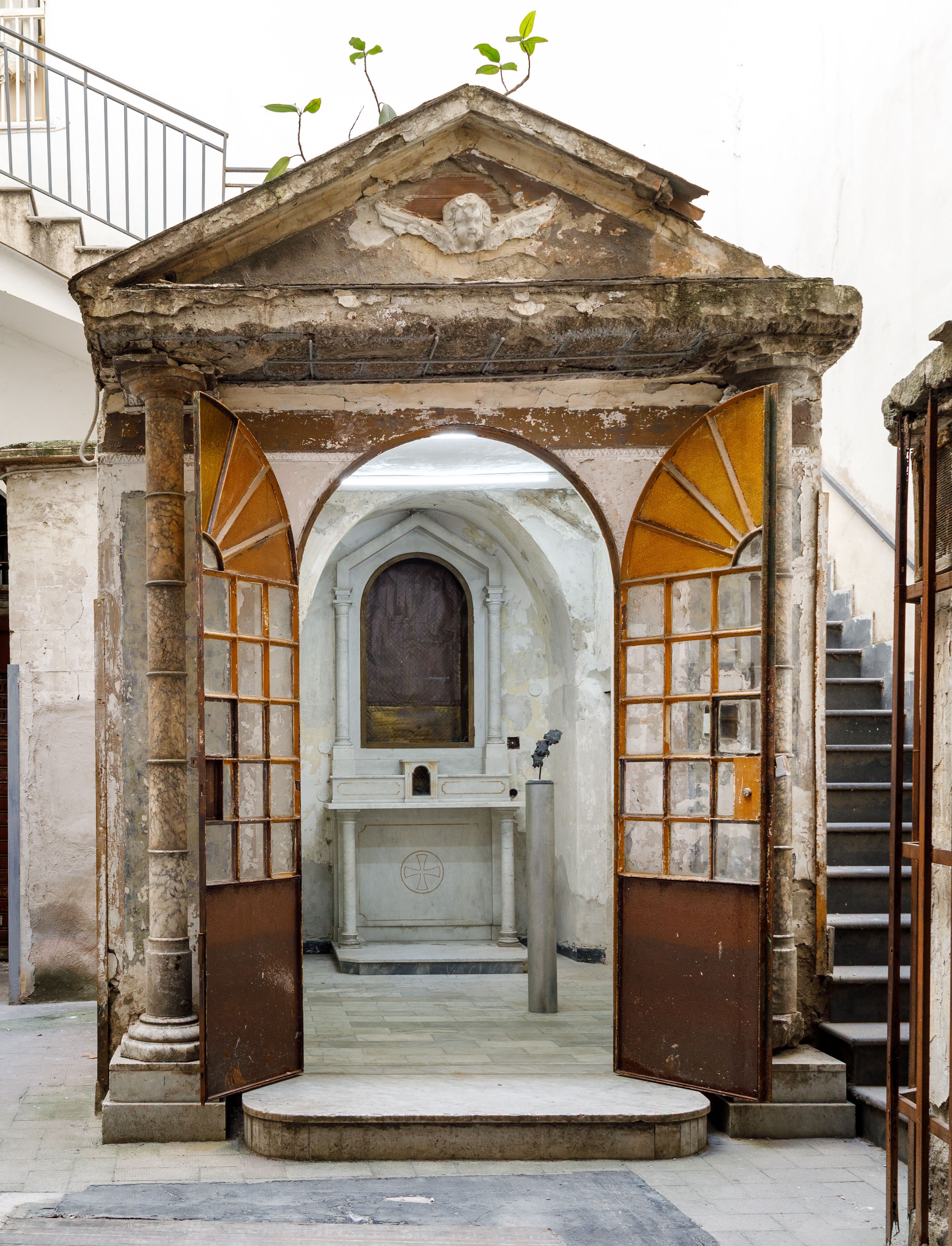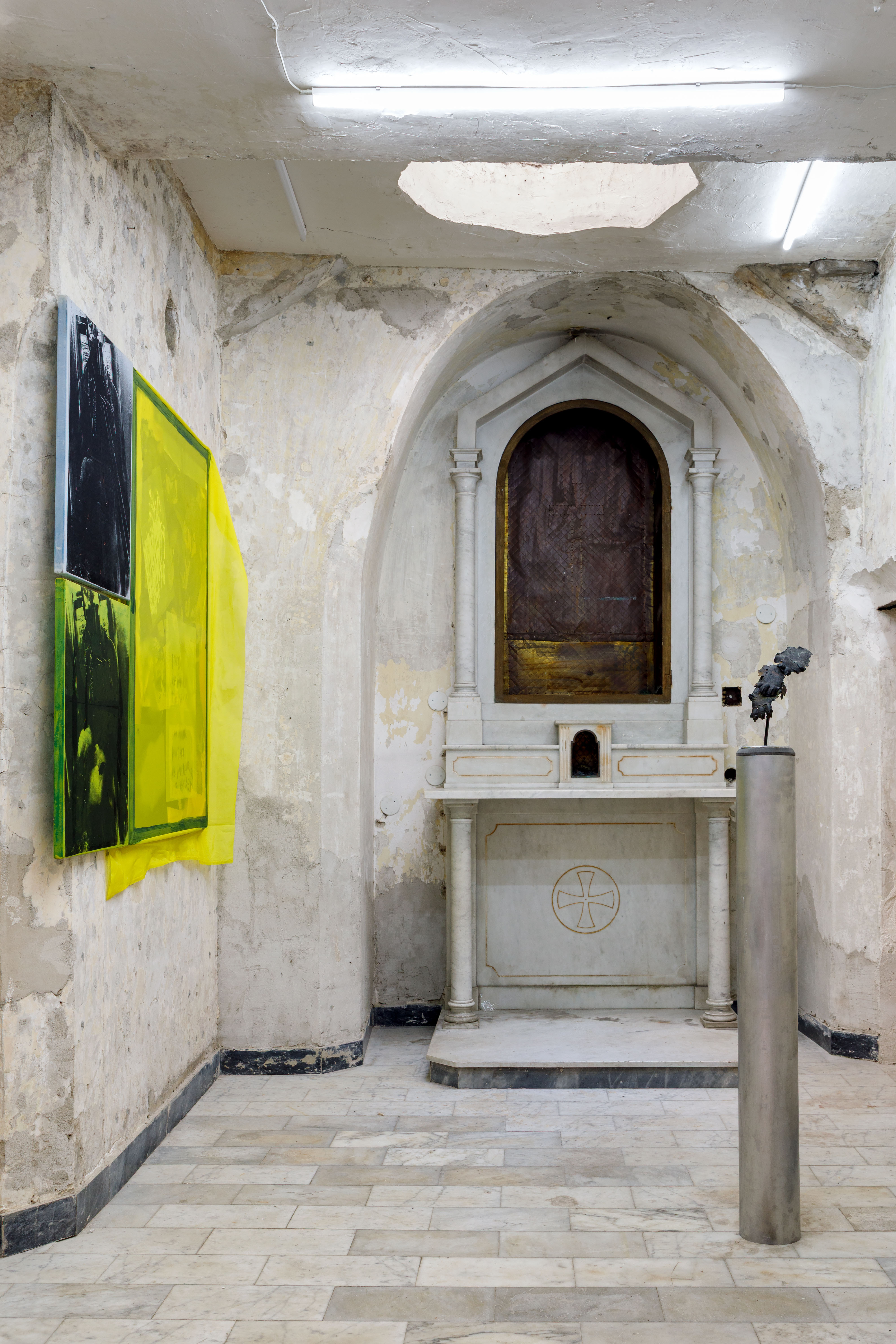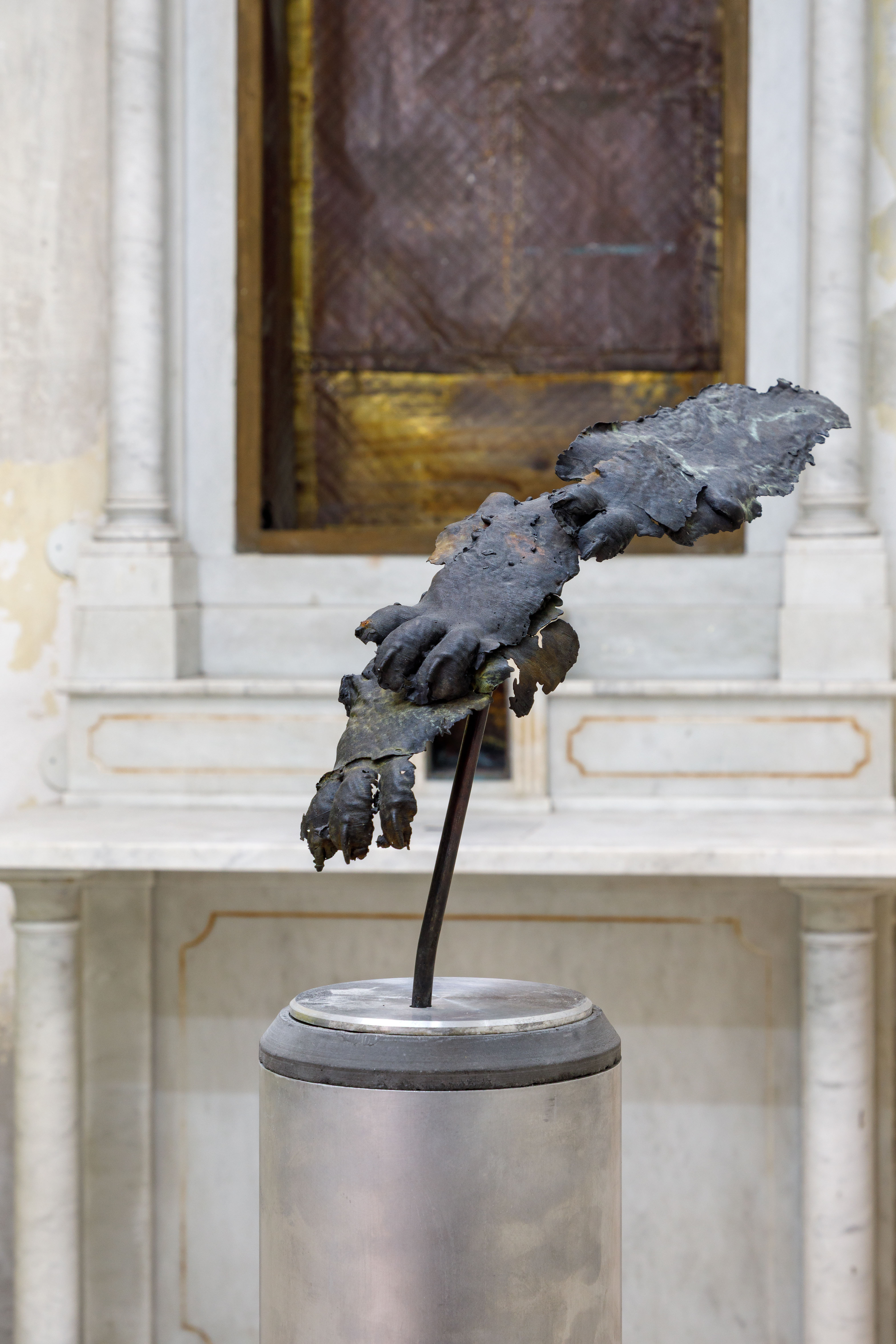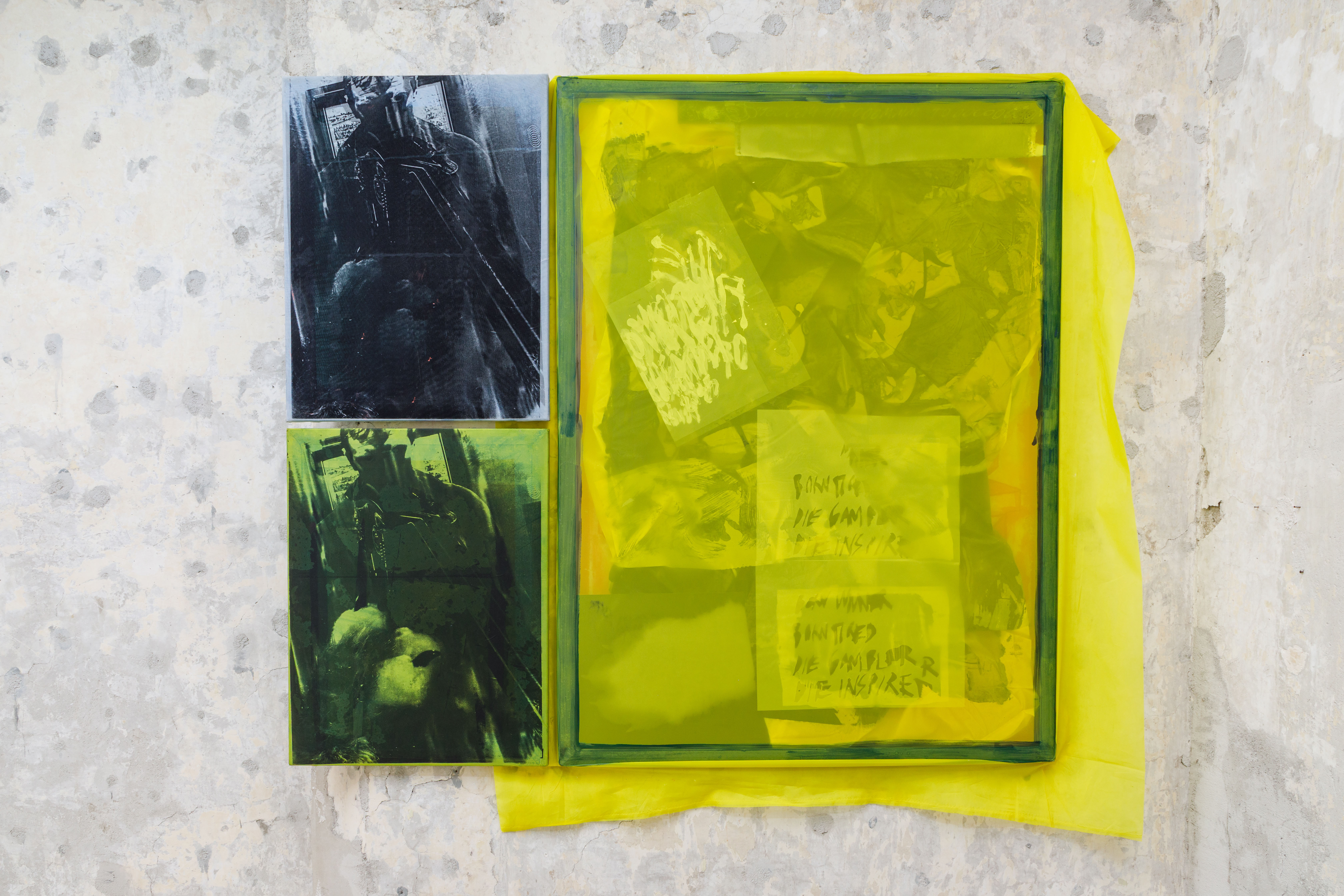
Alessandro Di Pietro
Long Story Short
1 / 0
ENG
Mickey Mouse had been a winner. Not the kind who fights—just the kind who appears on lunchboxes long enough to convince children that the world is safe, and that they, too, might someday smile forever.
But something had changed.
He woke up in 2011 with a noise in his ears—like the trading floor screaming underwater—and realized: the game had ended three years ago. 2008. The party collapsed, the roulette wheel stopped, and only the dealers still got paid. The rest were left with the bill and a handful of expired metaphors.
Goofy was hiding in a dumpster behind Tomorrowland, drawing graphs in mustard on cardboard. “Capitalism’s cracked, Mick,” he said. “It ran outta future.”
Mickey boarded a flight to New York. No first class. No applause. Just a cartoon fading at the edges.
He arrived in Zuccotti Park like a pilgrim with amnesia. He wandered between tents and slogans, invisible to the news cameras, but unmistakable to the kids born in the ‘90s—the ones who’d learned too early that debt wasn’t just financial, but emotional.
They pulled him into the circle.
“You were our promise,” one of them said, holding a sign that read BEG FOR TOMORROW.
“I was,” Mickey admitted. “And now I’m the receipt.”
At night, he told stories by flashlight: how the dreams were mortgaged, how winning had become pathological—just another mask for losing slower. The crowd wept and clapped and handed him a black hoodie. He wore it like sackcloth.
He felt almost real.
Then came the crackdown. Sirens, helicopters, a mechanical voice announcing evacuation like it was a Disney ride malfunctioning. Mickey ran. He ran not because he was scared, but because he knew the show was over. He had gambled on the future—and lost.
Italy was stuck like old gum on the bottom of the EU’s shoe.
Mickey arrived in Naples by slow train, chewing over the phrase la crisi, which sounded so elegant, so operatic, compared to recession. The city suited him: burnt-out grandeur, faith in superstition, the quiet knowledge that nothing fixed would stay fixed.
He drifted. Slept in abandoned cinemas. Listened to boys on scooters shout prophecies in dialect.
That’s when he heard about the fresco: Saint Francis devouring corporate logos—Google, McDonald’s, Visa—his eyes weeping blood into a bowl of shareholder reports. A Neapolitan man named Dodo approached him outside a church.
“You want meaning?” Dodo asked. “Take it.”
They broke in before dawn. The church smelled like rust and myth. The fresco glowed on the back wall like a last truth. But when Mickey touched it, the floor gave out. He fell.
In the catacombs, among bones older than bankruptcy, Mickey lay dazed. A shadow moved.
Another mouse. Older, ragged, eyes like lit coals.
“Vesuvio,” the creature said. “I’ve been waiting.”
Mickey blinked. “For me?”
“For the end. You’re just the sign.”
Vesuvio lit a candle made from old wax and burned futures. “We all grew up thinking we’d win. Then we realized the game was rigged, and worse—we were meant to win, once. But if you’ve played your card and all you got was existence... what now?”
Mickey didn’t answer. His suit was torn. His gloves, blackened. But he felt lighter.
“We bet on what’s left,” Vesuvio said. “We bet on the rats, the ruins, the children born after the collapse. We bet radically, because there’s no other way.”
The two mice sat together in the damp silence.
Above them, the city coughed into the morning.
And somewhere in the sewers, something new began to stir.
ITA
Topolino era stato un vincitore. Non il tipo che combatte — solo il tipo che appare sulle lunchbox abbastanza a lungo da convincere i bambini che il mondo è sicuro, e che anche loro, un giorno, potranno sorridere per sempre.
Ma qualcosa era cambiato. Si svegliò nel 2011 con un rumore nelle orecchie — come il caos della borsa che urla sott’acqua — e capì: il gioco era finito tre anni prima. Nel 2008. La festa era crollata, la roulette si era fermata, e solo i croupier continuavano a essere pagati. Tutti gli altri erano rimasti con il conto e una manciata di metafore scadute.
Pippo si nascondeva in un cassonetto dietro Tomorrowland, disegnando grafici con la senape su cartone. “Il capitalismo si è rotto, Mick,” disse. “Ha finito il futuro.”
Topolino prese un volo per New York. Niente prima classe. Nessun applauso. Solo un cartone che sbiadiva ai bordi.
Arrivò a Zuccotti Park come un pellegrino con l’amnesia. Vagò tra tende e slogan, invisibile alle telecamere, ma inconfondibile per i ragazzi nati negli anni ’90 — quelli che avevano imparato troppo presto che il debito non era solo finanziario, ma anche emotivo.
Lo tirarono nel cerchio.
“Eri la nostra promessa,” disse uno di loro, tenendo un cartello con scritto CHIEDI PER IL DOMANI.
“Lo ero,” ammise Topolino. “E ora sono la ricevuta.”
Di notte raccontava storie alla luce della torcia: come i sogni fossero stati ipotecati, come vincere fosse diventato patologico — solo un’altra maschera per perdere più lentamente. La folla piangeva, applaudiva e gli porgeva una felpa nera con cappuccio. Lui la indossava come un sacco di tela. Si sentiva quasi reale. Poi arrivò la repressione. Sirene, elicotteri, una voce meccanica che annunciava l’evacuazione come se fosse un guasto a una giostra Disney. Topolino scappò. Non perché avesse paura, ma perché sapeva che lo spettacolo era finito. Aveva scommesso sul futuro — e aveva perso.
L’Italia era rimasta incollata come una gomma vecchia sotto la scarpa dell’UE.
Topolino arrivò a Napoli con un treno lento, riflettendo sulla frase *la crisi*, che suonava così elegante, così operistica, rispetto a *recessione*. La città gli andava a pennello: grandezza bruciata, fede nella superstizione, la silenziosa consapevolezza che nulla di fissato sarebbe rimasto fisso.
Vagava. Dormiva in cinema abbandonati. Ascoltava ragazzi in scooter gridare profezie in dialetto.
Fu allora che sentì parlare dell’affresco: San Francesco che divora loghi aziendali — Google, McDonald’s, Visa — con gli occhi che piangono sangue dentro una ciotola di bilanci per azionisti. Un uomo napoletano di nome Dodo gli si avvicinò fuori da una chiesa.
“Vuoi un senso?” chiese Dodo. “Prendilo.”
Entrarono prima dell’alba. La chiesa odorava di ruggine e mito. L’affresco brillava sulla parete di fondo come un’ultima verità. Ma quando Topolino lo toccò, il pavimento cedette. Cadde. Nelle catacombe, tra ossa più vecchie della bancarotta, Topolino giaceva stordito. Una ombra si mosse.
Un altro topo. Più vecchio, trasandato, con occhi come brace accesa.
“Vesuvio,” disse la creatura. “Ti stavo aspettando.”
Topolino sbatté le palpebre. “Me?”
“Per la fine. Sei solo il segno.”
Vesuvio accese una candela fatta di vecchia cera e futuri bruciati. “Siamo cresciuti pensando che avremmo vinto. Poi abbiamo capito che il gioco era truccato, e peggio — dovevamo vincere, una volta. Ma se hai giocato la tua carta e tutto ciò che hai ottenuto è stata l’esistenza... e adesso?”
Topolino non rispose. Il suo abito era strappato. I guanti, anneriti. Ma si sentiva più leggero.
“Scommettiamo su ciò che resta,” disse Vesuvio. “Scommettiamo sui topi, sulle rovine, sui bambini nati dopo il crollo. Scommettiamo radicalmente, perché non c’è altra via.”
I due topi si sedettero insieme nel silenzio umido.
Sopra di loro, la città tossiva nel mattino.
E da qualche parte nelle fogne, qualcosa di nuovo iniziò a muoversi.
Photo credits Danilo Donzelli
